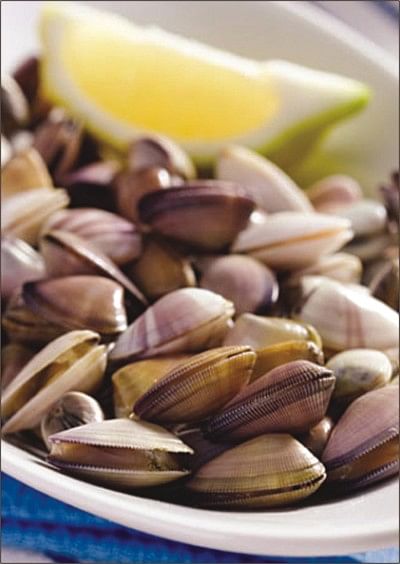Iron rich foods for Iron deficiency anemia

For iron deficiency anemia especially in women, a diet with iron rich foods along with iron supplements is often recommended. Absorption of iron from food is influenced by multiple factors.
One important factor being the form of the iron. Heme Iron, found in animal sources, is highly available for absorption. Non-heme iron on the other hand, found in vegetable sources, is less available. Iron rich foods of an iron rich diet are listed below:
Iron rich foods containing Heme Iron:
Excellent sources are clams, liver, oysters, mussels and good sources are beef, shrimp, sardines, turkey.
Iron rich foods containing Non-Heme Iron:
Excellent sources are enriched breakfast cereals, cooked beans and lentils, pumpkin seeds, blackstrap molasses and good sources are canned beans, baked potato with skin, enriched pasta, canned asparagus.
Warning
Pregnant women should not eat liver because of its very high Vitamin A content. Large amounts of Vitamin A can be harmful to the baby.
The absorption of Non-heme iron can be improved when a source of heme iron is consumed in the same meal. In addition, the iron absorption-enhancing foods can also increase the absorption of non-heme iron. While some food items can enhance iron absorption, some can inhibit or interfere iron absorption. Avoid eating them with the iron-rich foods to maximise iron absorption.
Iron absorption enhan-cers
They include meat, fish, poultry; fruits like orange, cantaloupe, strawberries, grapefruit etc.; vegetables like broccoli, brussels sprouts, tomato, tomato juice, potato, green and red peppers; white wine.
Iron absorption inhibitors
They include red wine, coffee and tea; vegetables like spinach, chard, beet greens, rhubarb and sweet potato; whole grains and bran; soy products.
* The write-up is compiled by Easir Abedin, a Microbiologist.

 For all latest news, follow The Daily Star's Google News channel.
For all latest news, follow The Daily Star's Google News channel. 



Comments